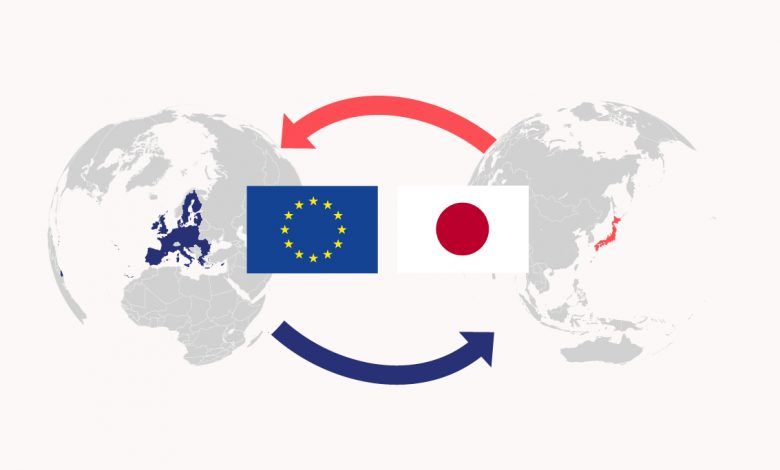FTA between the EU and Japan celebrates 2 years of validity

February 1 marks the second anniversary of the Free Trade Agreement (FTA) between the European Union (EU) and Japan, called the Economic Association Agreement (EPA).
The Joint Committee established under the Agreement, co-chaired by Executive Vice President Valdis Dombrovskis and Japanese Foreign Minister Toshimitsu Motegi, celebrates this anniversary by agreeing on improvements to it.
«Each side will see 28 additional Protected Geographical Indications (GIs) and the trade in wine and vehicles between the two sides will be even easier than before,» the European Commission reported.
Dombrovskis said: “The EU-Japan Economic Partnership Agreement is one of our most important agreements. Together, the EU and Japan represent a quarter of world GDP and our bilateral trade amounts to around € 170 billion a year”.
The list of protected GIs from EU countries and Japan now includes an additional 28 GIs for each side. This is an important advance, as it is the fastest expansion of a list of GIs under a FTA.
This list will be expanded by 55 geographical indications for both parties. Some GIs from EU countries include Cassis de Dijon, Kalamata olive oil, and Cariñena wine.
TLC
The European Commission stressed that exporting vehicles to the other side will be easier. The two parties agreed to expand the list of security requirements that will not require dual approvals.
For example, if the EU issues a certification that an EU-made car exported to Japan meets certain safety requirements, Japan will no longer verify compliance with those requirements, and vice versa.
This includes important new and green technologies such as hydrogen and hybrid vehicles.
Japan has recently brought its wine standards closer to EU standards under NAFTA and has authorized several EU oenological practices on its territory. As a result, more wine from the EU will be able to reach the Japanese market.
The procedures for claiming and obtaining tariff preferences have been simplified. This has made it easier for EU companies to export to Japan.
Simplifying procedures is particularly important for small businesses that often don’t have the resources to explore and make use of complicated rules.
![]()

